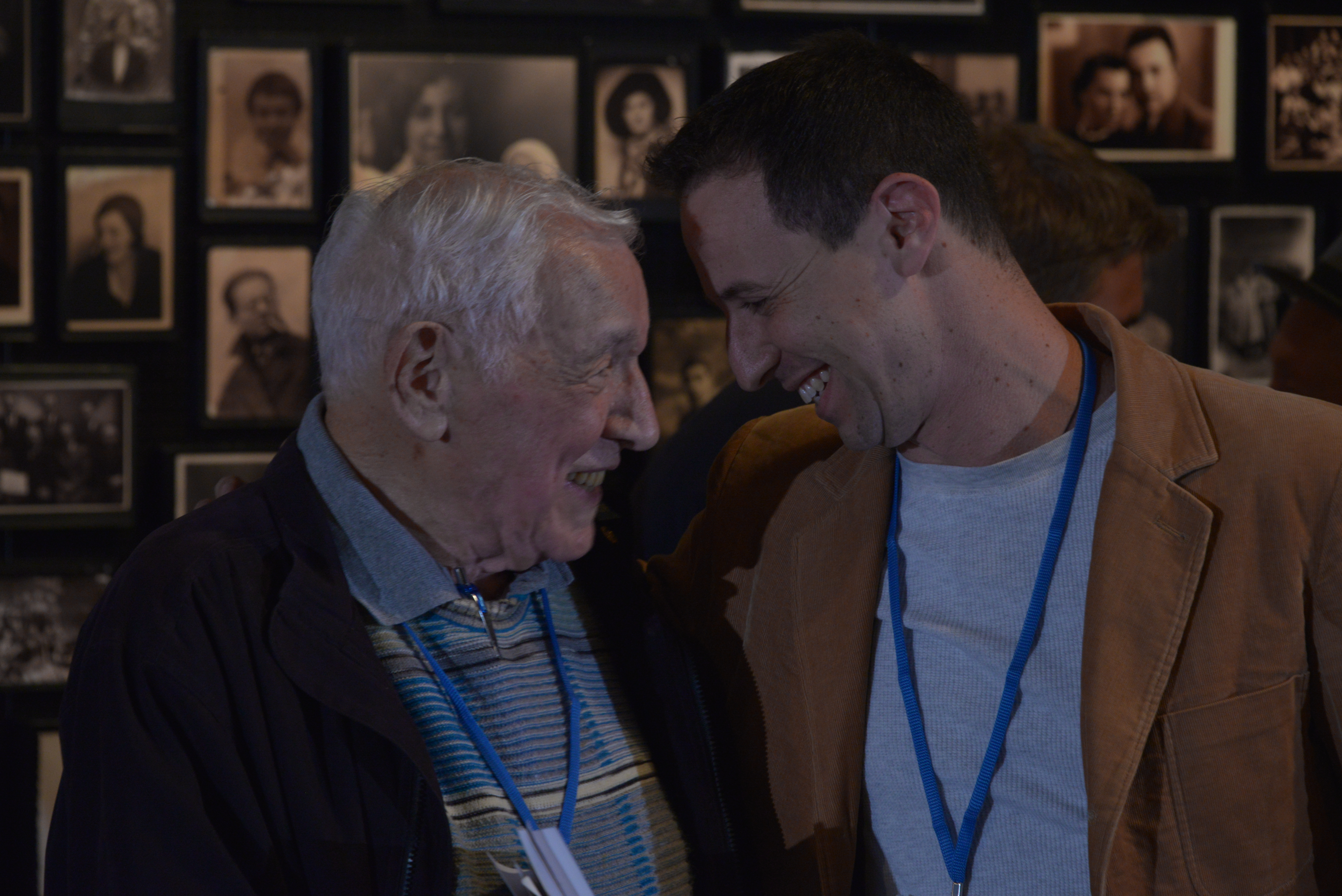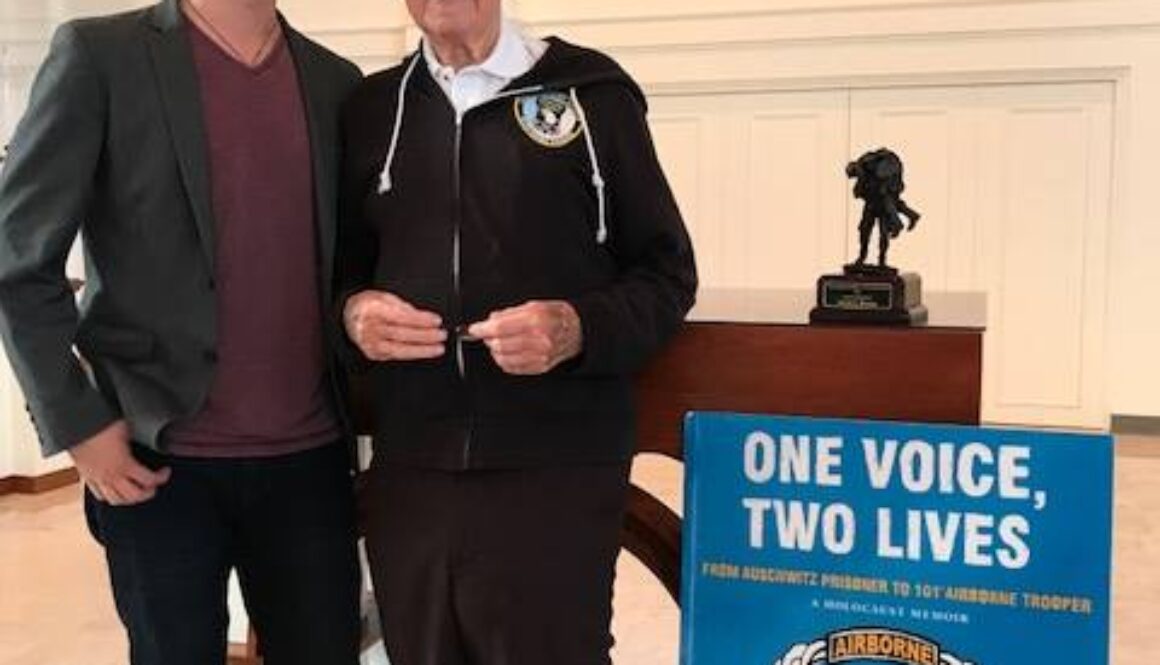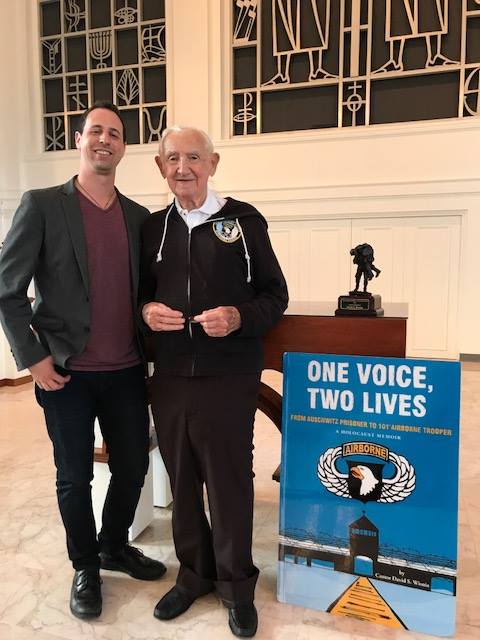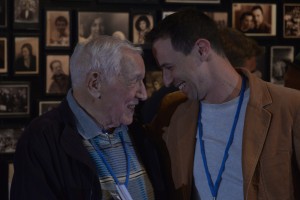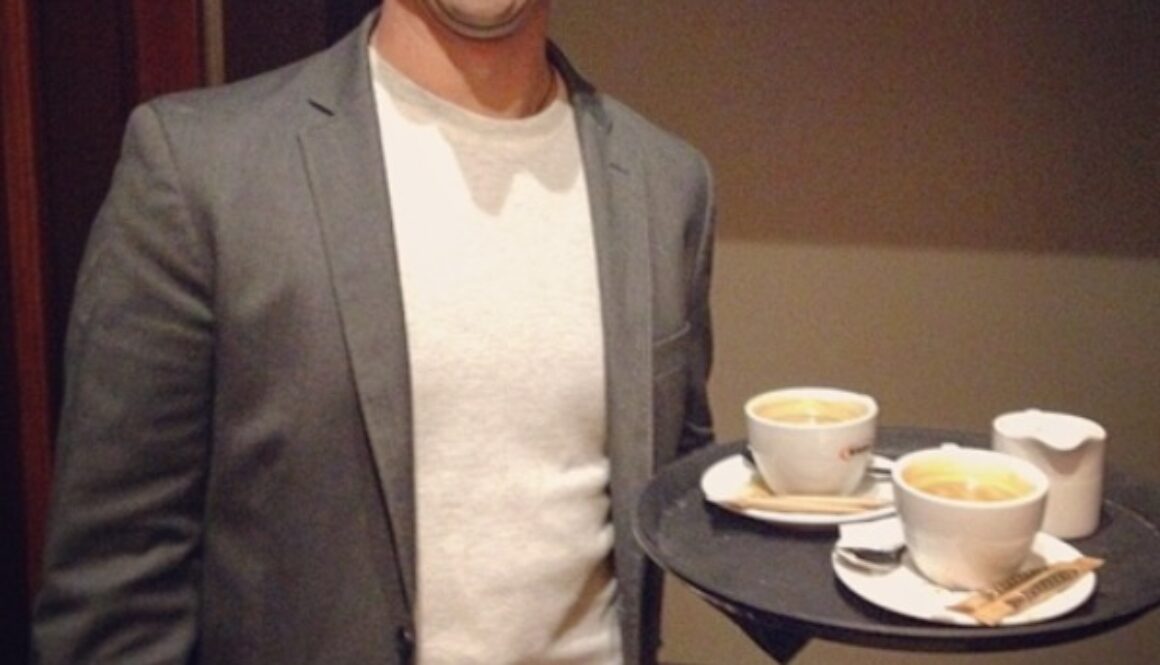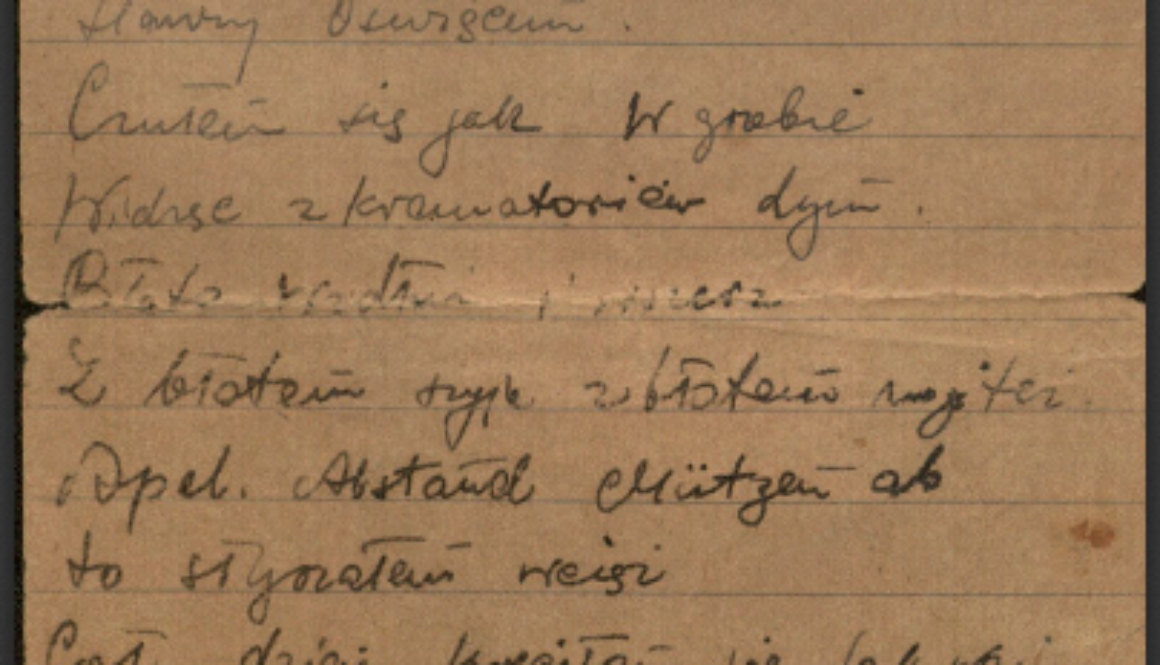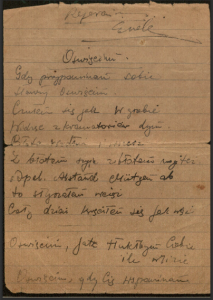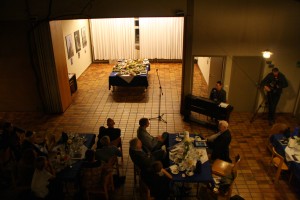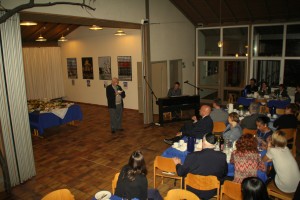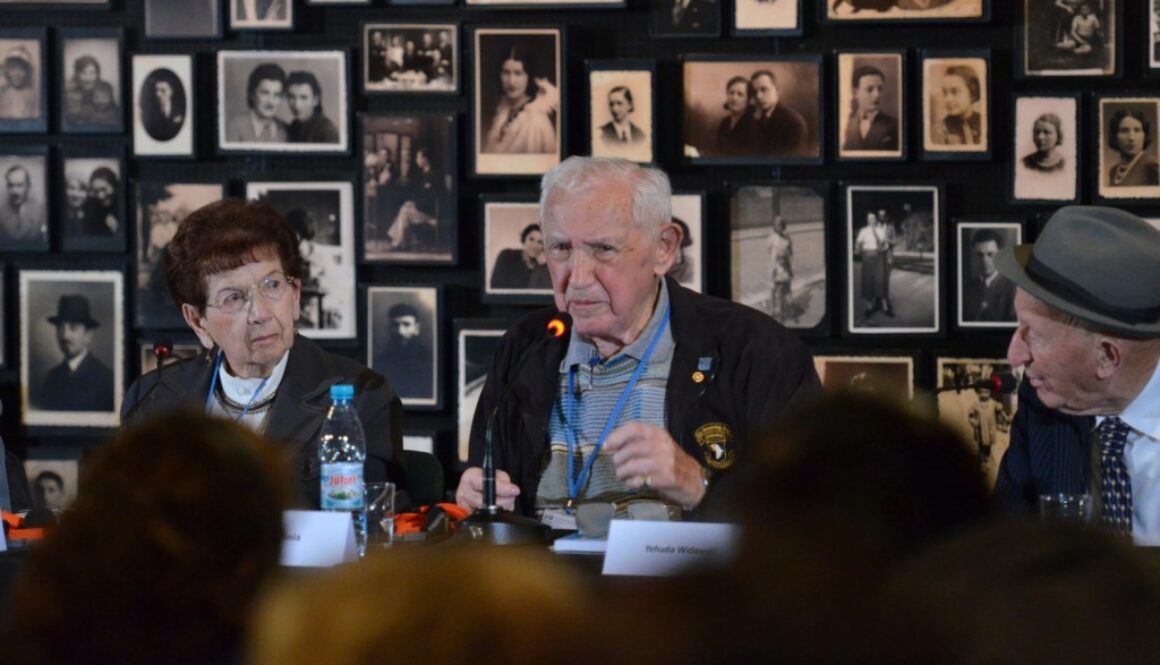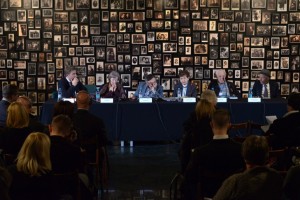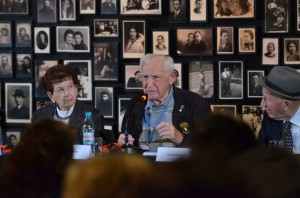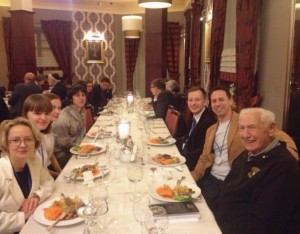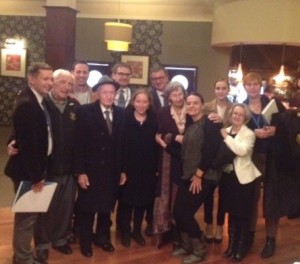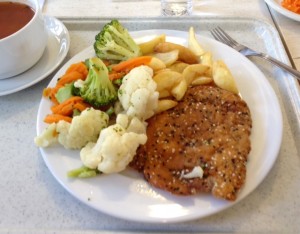My Polish Wisnia turned the camera on me.
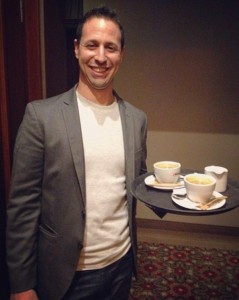
It was our last night here in Oświęcim. We got back to Hotel Galicja just as another family was checking in. In just a few hours, we would leave for Krakow, and then Vienna, then New York, then Philadelphia. It was going to be a full day of travel, and it had already been one of the most intense days we have had here. Visiting Auschwitz requires a lot of walking, a lot of standing. But the most draining are the memories.
We had earned our coffee, and my grandfather deserved some room service (that would be me). As he was taking my picture in the doorway of our room, the family that had just checked in downstairs came lumbering down our hall, speaking some other language, dragging their luggage behind them. My grandfather, naturally, poked his head out into the hallway. Where are you from? What language is this? The teenage daughter answered us. She was the only member of her family that spoke English, her parents and her younger brother only spoke Hungarian and did not understand. “Hungarian! You know, I know a song in Hungarian…” and my grandfather launched into some Hungarian tune, which I had never heard him sing before. So, I guess, add Hungarian to his list of languages. And then the entire family joined him, singing in the hallway. This was an apparently popular old Hungarian song.
The family looked tired. We were tired too. But upon meeting new people, suddenly my grandfather wasn’t tired anymore. Or he just forgot he was tired. When the family found out my grandfather was a survivor of the concentration camp, their eyes went wide, and they forgot they were tired too.
The daughter explained that they had just arrived to spend a few days visiting the site of Auschwitz-Birkenau. She then translated for her family as my grandfather ran through his history, from growing up outside Warsaw, to the violence he experienced in the Warsaw ghetto, to ending up in this place, a prisoner for over two and a half years. We just got back from visiting the barracks where he slept as a prisoner of Birkenau. The girl looked a little timid. “And what is the difference between Auschwitz and Birkenau?”
A year ago, I would have asked the same question. Because of my travels with my grandfather, I have gotten to know many more survivors and their stories. I have gotten to see so much of Auschwitz and hear experts talk about its history and legacy. I have gotten to understand more and more what my grandfather experienced. The girl’s question made me realize just how much of an education I have received.
Her question was so innocent, and my grandfather answered it without hesitation. They certainly had a lot to learn. Coming to Auschwitz and speaking to a survivor, that is the best way to learn.
#MyPolishWisnia
